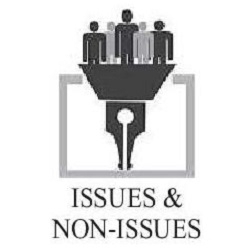Uncover The Dark Truth - IX
| Date :19-Apr-2025 |

By Vijay Phanshikar :
Several important
persons in India's
power-pyramid
suspected the Chinese intentions in Tibet and cautioned Prime Minister Pandit Jawaharlal Nehru to alert to the negative impact of the possible Chinese take-over of Tibet. However, Pandit Nehru refused to be influenced by those wise words.
“It is worth keeping in mind that the Chinese on the whole have a profound contempt for the Indians, and also a sense of very considerable superiority towards them ... While an Indian on occasion may be sentimental, the Chinese is essentially a realist ... on the personality side while the Indians are frequently superior, the Chinese Communist leaders are physically and morally of an altogether tougher breed and fibre.
- A note filed by British
officers in the Foreign Office in May 1950, presenting a comparative analysis of the Chinese and the Indians, as quoted by Ms. Nirupama Rao, former Foreign Secretary, in her seminal work
“The Fractured Himalaya:
India-Tibet-China
1949-1962”,
Chapter titled ‘Freedom, Liberation and Nationhood’, page 23,
(Penguin/Viking, 2021 -- Hard Cover)
THE Indian leadership immediately after Independence in 1947 had no inkling of how the Chinese thought about the Indians.
It also appeared averse to making a comparative analysis of themselves as against their Chinese counterparts -- so much so that they kept believing and insisting that they must go overboard to help China emerge from its backwardness. With such a mindset, India sent Mr. K.M. Panikkar as its representative to Peking (Beijing). That appointment was seen by some segments in Indian power structure of the time with a lot of suspicion. Some high officers in New Delhi even felt that Mr. Panikkar went to Peking with set ideas and was not reporting objectively but fitting the facts to his theories -- that hurt Indian interests badly.
This early observations actually offer a fairly accurate picture of how the Indian power-pyramid thought and functioned in those days immediately after Independence. There was no realism in their approach to serious issues of diplomacy and strategy and national security and defence. What prevailed over and above the reality was a sentimentalism whose merit was questioned by many in India -- and also elsewhere.
Yet, the Indian leadership chose to ignore every word of caution -- an impression that gets buttressed by several accounts written by independent observers from different domains.
Several important persons in India’s power-pyramid suspected the Chinese intentions in Tibet and cautioned Prime Minister Pandit Jawaharlal Nehru to alert to the negative impact of the possible Chinese take-over of Tibet. However, Pandit Nehru refused to be influenced by those wise words. Instead, he kept placing an unshakable faith in the reporting of Ambassador Mr. K.M. Panikkar about the Chinese being good -- even great -- people with pious hearts.
It is in regard to the Chinese take-over of Tibet that a noting by Mr. Hugh Richardson, a British Civil Servant and acclaimed Tibetologist, needs to be considered. He wrote: “When the blow fell on Tibet in 1950, there was no generally informed international knowledge of (its) status ... only the British and Indian governments ... could have made some positive statement but the situation was dominated by India’s relations -- friendly at that time -- with China; and the opportunity to speak out before the United Nations was rejected ...” !
That says everything.
The Indian leadership remained in a kind of hypnosis and starry-eyed romance with the Chinese.
The Chinese exactly knew where the Indians stood -- and exploited their sentimentalism to the hilt. They appeared to have only one diplomatic goal at that time -- to keep India mired in its leadership’s romanticised blindness about good intentions of the Chinese.
That emotional smoke-screen worked well for China, whose leadership kept preparing for its expansionist designs even on the Indian territory. That was the reason why the Indians felt shell-shocked when the People’s Liberation Army (PLA) mounted a wave of attacks on remote Indian posts in the Himalayan heights put put through the haphazard and militarily immature ‘Forward Policy’ that the Prime Minister and some of his close associates embraced.
Of course, visionary military leaders such as Lt. General S.P.P. Thorat even advised use of Air Force when the Chinese aggression actually took place.
For reasons never explained Pandit Nehru ruled out such a usage. That would actually have thrown the Chinese back effectively. For, after the initial setback of the first nine days following the invasion, the Indian Army started a brave fight-back of unparalleled nature -- in the process harassing the PLA no end. An Air Force counter would have made all the difference. But the Indian leadership just refused to consider that winner-option -- for reasons not known to anybody.
Innumerable details of such kind dot the massive body of different accounts of those times not just by Indians but also by others. Each of those accounts leads one to feel sad even 63 years after the humiliating national experience of India. True, this blaming has only an academic value today. Yet, this truthful recall is necessary because some political elements tried to promote falsehood in that regard.
